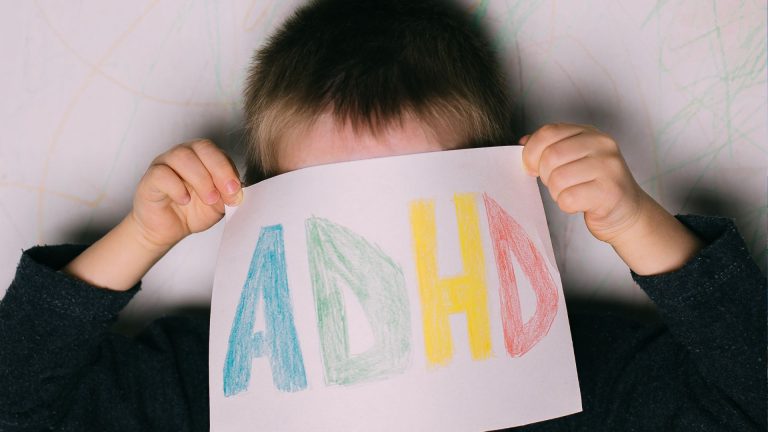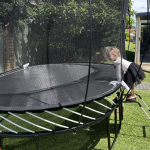Emotional Regulation: Parenting with ADHD When You Share the Diagnosis

Written by Dr. James Neuenschwander, founder, Bio Energy Medical Center
Australia is experiencing a surge in ADHD diagnoses, with nearly half a million people prescribed medication in 2022–2023 alone. This growing awareness means more parents are coming to terms with their own ADHD diagnosis while simultaneously raising children with the same condition.
Parenting under these circumstances isn’t just demanding, it’s often emotionally straining. However, with shared neurological patterns comes the opportunity to connect with your child on a deeper level. As a parent with ADHD, you have a unique lens into your little one’s world. Perhaps you’ve felt restless during a work meeting or found yourself hyperfocused on the wrong task at the wrong time. Your child may display ADHD differently, but the core neurological differences are rooted in the same mechanisms.
This common ground can create a powerful bridge for connection and support when it comes to implementing strategies for managing ADHD at home.
Understanding Emotional Regulation
One of the greatest challenges for families with multiple ADHD diagnoses is emotional regulation. When both parent and child are prone to heightened emotional responses, even minor hiccups can spiral into full-blown conflicts. Understanding the physiological roots of this reactivity – rather than viewing it as bad behaviour – can be a turning point.
Emotional dysregulation in ADHD stems from difficulties in the brain’s executive function system, which governs impulse control, attention, and emotional response. Recognising this allows parents to pause, breathe, and create space between reaction and response, which can turn potential blow-ups into moments of modelling emotional resilience.

Small Lifestyle Shifts Can Make a Big Impact
Medication can be life-changing, but it’s only one piece of the ADHD management puzzle. Supporting neurological function through lifestyle choices is crucial for both children and adults. Diet, for example, plays a pivotal role. While each person reacts differently, research shows that cutting back on refined sugars, processed snacks, and artificial dyes can reduce hyperactivity and mood swings. Choosing a diet rich in lean proteins, colourful vegetables, and healthy fats can stabilise energy and mood.
Equally important is movement. Children with ADHD often crave sensory input, so instead of telling them to sit still, build in active breaks throughout the day. A five-minute dance-off or a trampoline jump before school can reset the nervous system. For parents, even a brisk walk can reduce agitation and improve focus.
Sleep, too, cannot be overlooked. ADHD brains tend to resist winding down. That means predictable bedtime routines, no screens an hour before bed, and perhaps even tools like white noise or weighted blankets to support restful sleep. If snoring or restless sleep is common, it’s worth investigating sleep disorders like sleep apnoea, which are more common in ADHD and severely impact daytime functioning.
Rethinking the Morning Rush
One of the most chaotic times in any household is the morning routine, especially when the parent also struggles with organisation. A missed lunchbox here, a forgotten library book there and suddenly, everyone is melting down before 8am.
The antidote isn’t perfection, but preparation. Instead of reacting to the morning, set it up the night before. Lay out clothes, prep lunches, and use visual cues like checklists or picture schedules. For younger kids, a simple drawing of essential items such as ‘shoes, backpack, water bottle’ can work wonders.
Adults with ADHD benefit from these structures just as much as their children do. Creating rituals, whether it be brushing teeth to the same song each morning or having breakfast at the same time, can bring order to what might otherwise feel like chaos.
Tackling ADHD as a Family System
It’s tempting to think of ADHD as an individual diagnosis. But the reality is that it affects the entire family dynamic. Treating it as a shared challenge, rather than isolating it to one person, leads to better outcomes. When routines, expectations, and emotional support strategies are built into the family culture, everyone thrives.
There’s also growing research into the connection between gut health, inflammation, and ADHD. While more studies are needed, many families find that addressing food intolerances, supporting the gut microbiome, and reducing environmental toxins can lead to improvements in focus, sleep, and emotional stability.
Parenting with ADHD while raising a child who shares your neurology is no small feat. But it’s also a profound opportunity. When handled with understanding, compassion, and proactive strategies, parents can become their child’s greatest ally. And in doing so, they can raise brilliant and resilient children.
 Dr James Neuenschwander (Dr Neu) is an integrative medicine specialist and founder of the Bio Energy Medical Centre in the US. He is a guest speaker at the Mindd International Forum in Sydney from May 1-3.
Dr James Neuenschwander (Dr Neu) is an integrative medicine specialist and founder of the Bio Energy Medical Centre in the US. He is a guest speaker at the Mindd International Forum in Sydney from May 1-3.






















